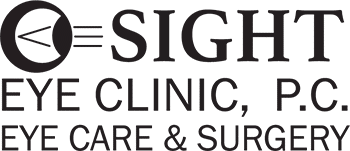These Foods Can Benefit Your Eye and Vision Health
You have no doubt heard that “carrots are good for your eyes,” but a diet for maintaining great eye and vision health consists of much more than one vegetable.
As with promoting great health anywhere else in your body, proper nutrition for your eyes should come from multiple sources. A healthy diet featuring a variety of good foods is always an excellent investment to make.
However, not everyone has the same access to certain foods, and not everyone is able or willing to eat specific foods as well. We’re always happy to help patients find the best nutritional options for their vision needs. Your primary care physician is always a great person to turn to if you plan on making any big changes to your diet, as well.
How Can Food Choices Affect My Vision Health?
Our bodies require certain nutrients for optimal function. When we do not receive enough of these nutrients, it can increase our risks of certain problems developing or becoming more severe over time.
Here are just a few examples of where specific nutrients can matter:
- Vitamin A helps protect the cornea, and in turn, safeguards your eyes’ ability to focus light. This helps prevent night blindness and can also help against dry eyes from ocular strain.
- Vitamin C has antioxidant properties that are believed to help reduce the progression of cataracts, and may also help prevent age-related macular degeneration. One study shared by the American Academy of Ophthalmology connected a rich intake of Vitamin C with a 33% reduction in cataract progression risk.
- Omega-3 Fatty Acids can help your eyes maintain a proper level of moisture, reducing your likelihood of dry eyes. Additionally, their properties as a healthy fat can also benefit your retinal health.
And not only the above nutrients can benefit specific situations when it comes to eye health. Zinc can also help reduce the risk of night blindness, and vitamins D and E can also help prevent macular degeneration.
As we noted before, a mix of nutrients is always your best bet – so what are the best ways to get them?
A Feast for the Eyes
The good news when it comes to taking in a variety of eye-healthy nutrients is that we tend to have plenty of options. If there are foods you are restricted from eating due to allergies, dietary restrictions, or a simple personal choice, the chances are high of there being another suitable food or supplement that will supply your needs.
So while we will make a number of food suggestions below, do not take them as your only options. Your primary care physician or a dietician can help you find excellent alternatives for however your needs and tastes may align.
Meat and Fish
We know that not everyone eats meat and/or fish, and that is perfectly fine. If you do, the following choices pack nutritional payloads for your vision health.
- Coldwater Fish. Omega-3 Fatty Acids are prevalent in coldwater fish such as tuna, salmon, mackerel, and sardines.
- Lean Beef. We encourage red meats only in moderation. Nevertheless, having some lean beef now and then can be a great source of zinc.
Fruits and Vegetables
Many of us can probably stand to have more plants in our diets. Here are choices that can be smart for your eyes.
- Leafy (and Non-leafy) Green Vegetables. Green is always a go for the plant-based pigments lutein and zeaxanthin, which act as excellent antioxidants. Spinach, kale, peas, and broccoli are all winners.
- Other Colorful Fruits and Veggies. Bell peppers, tomatoes, cantaloupe, sweet potatoes, strawberries, and – yes – carrots are filled with eye-healthy nutrients. In addition to being good sources of vitamins A and C, plants with yellow, orange, and red pigments also contain carotenoids, which are believed to reduce the risk of many eye diseases.
Nuts and Seeds
- Nuts. Much like with fish, nuts – especially almonds, walnuts, and pistachios – are rich in Omega-3 Fatty Acids. They also tend to be high in Vitamin E, another antioxidant that can help prevent degeneration within the eyes.
- Legumes. Kidney beans, lentils, black-eyed peas, and other legumes contain bioflavonoids, which can provide protection to the retina.
- Sunflower Seeds. Vitamin E and Zinc can be found within this ballpark favorite.
- Chia Seeds. These pack a hefty punch of Omega-3 Fatty Acids and are also high in calcium and antioxidants.
Seed Oils. Flaxseed oil, black currant seed oil, and other certain seed-based oils can be another alternative to fish if you are looking for Omega-3 Fatty Acids.
Additional Foods
- Egg Yolks. Egg yolks contain Vitamin A, lutein, zeaxanthin, and zinc, all in one small, yellow package.
- Dark Chocolate. As a nice treat, dark chocolate contains antioxidants (flavonoids) that can help protect the eyes against degeneration, as well as aid against night blindness.
- Whole Grains. Opt for whole grains to get more Vitamin E and zinc in your diet. Brown rice, quinoa, whole-wheat bread and pasta, and whole oats are all good choices.
Build a Solid Plan for Long-Term Eye Health
All the above foods are not just beneficial to your eyes, but to your overall health as well. And as we noted before, they are not the only options you might have. There’s a world of great choices you can make with the right knowledge and guidance.
Part of that guidance is knowing what unique situations and potential problems you might need to pay more attention to. We can help you determine what the best choices are to help maintain long-term eye health and avoid conditions that may be more specific to you and your family.
Schedule an appointment at Sight Eye Clinic by giving us a call or filling out our online contact form.
